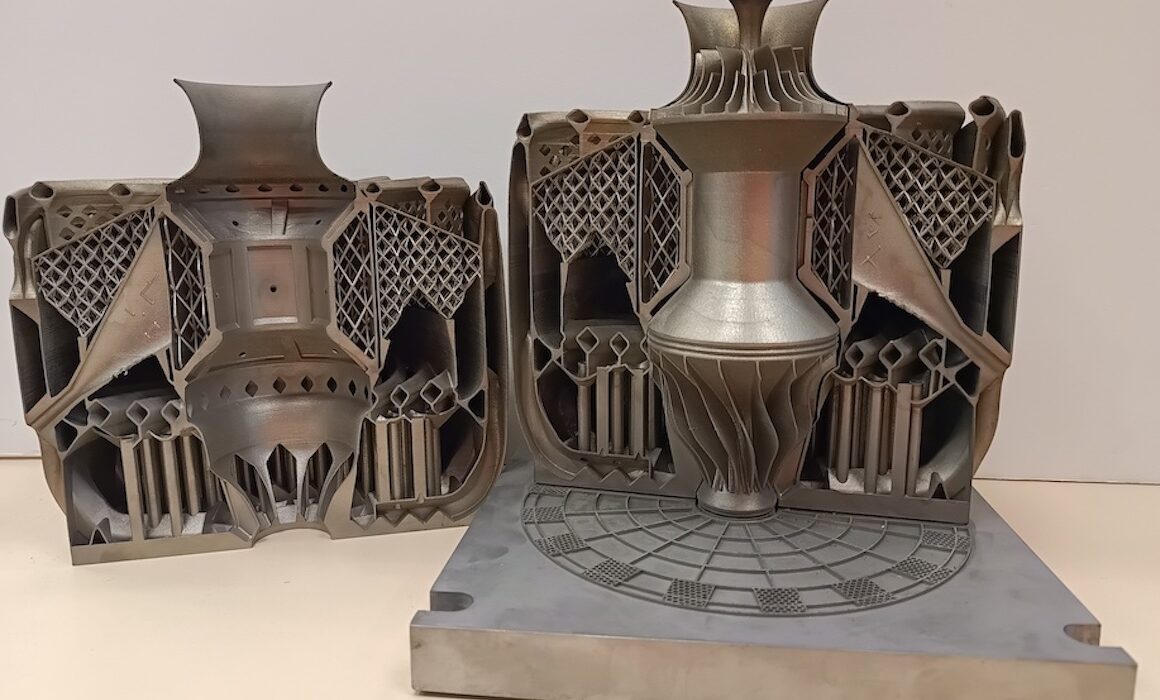Technion aerospace engineers in collaboration with U.S. software giant PTC have created a 3D-printed micro turbojet engine in one piece — not an easy feat considering the complexity of the many moving parts in a traditional jet engine.
While it is not the world’s first 3D-printed jet engine, Associate Professor Beni Cukurel and Dr. Ronen Ben Horin, a senior research fellow at the Technion and a VP of Technology at PTC, can lay claim to being the first to make the printed engine in a single, complete assembly.
“This microturbine engine is meant to be an iconic part that demonstrates the possible,” Steve Dertien, PTC’s chief technology officer told Forbes. Printing all the parts at once, including the rotating and stationary components, marks a breakthrough in 3D printed design. “Some of these features would be unthinkable just a few years ago. The uber goal was to do something that’s extraordinary, but accessible,” he continued.
In a statement to PTC, Prof. Cukurel said designing the engine — meant as a non-commercial research project — was the culmination of years of scientific research in jet propulsion and staying abreast of advancements in 3D printing (also called additive manufacturing). He was gratified that the University’s partnership with PTC could potentially impact the manufacturing of compact turbines for aerospace engineering and industries across the board.
PTC unveiled the eight-pound microjet engine in May 2023 at its annual technology event in Boston. The engine took 13 hours to create on a metal laser printer using PTC’s Creo CAD software, and has many advantages over traditional manufacturing. It is inexpensive to produce, and because it is made in one piece — doing away with replacement parts and shipping components — could allow on-demand, on-site manufacturing.
PTC’s achievement came just two years after entering a long-term alliance with the Technion to build a research and design center on the Haifa campus. “Scientific and technological breakthroughs need both multidisciplinary research and close collaboration between academia and industry,” Technion President Uri Sivan said at the time. The Technion-PTC team hopes that the center, now in the final stages of construction, will serve as a model of collaboration between academia and industry.
